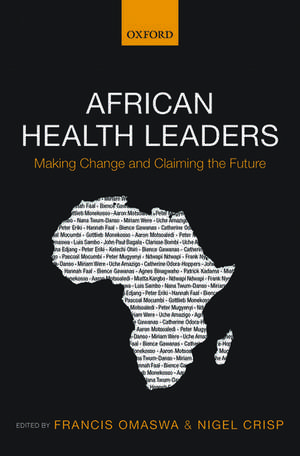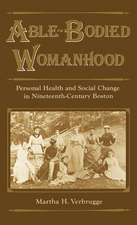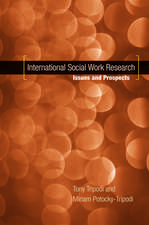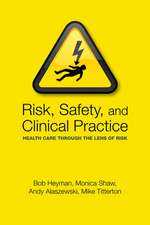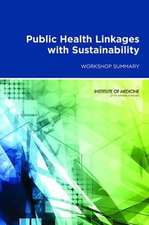African Health Leaders: Making Change and Claiming the Future
Editat de Francis Omaswa, Nigel Crispen Limba Engleză Paperback – 27 aug 2014
Preț: 356.97 lei
Preț vechi: 443.33 lei
-19% Nou
Puncte Express: 535
Preț estimativ în valută:
68.31€ • 73.04$ • 56.95£
68.31€ • 73.04$ • 56.95£
Carte tipărită la comandă
Livrare economică 07-12 aprilie
Preluare comenzi: 021 569.72.76
Specificații
ISBN-13: 9780198703327
ISBN-10: 0198703325
Pagini: 378
Dimensiuni: 171 x 234 x 20 mm
Greutate: 0.59 kg
Editura: OUP OXFORD
Colecția OUP Oxford
Locul publicării:Oxford, United Kingdom
ISBN-10: 0198703325
Pagini: 378
Dimensiuni: 171 x 234 x 20 mm
Greutate: 0.59 kg
Editura: OUP OXFORD
Colecția OUP Oxford
Locul publicării:Oxford, United Kingdom
Recenzii
The book provides an authoritative firsthand account of heroes and heroines who, despite working in very difficult and challenging contexts, have led real transformations in the health of Africans by inspiring others to do more and to become more.
This book is fascinating and a pleasure to read. You can open it at any page and learn how African Public Health people, government health advisors and senior doctors faced the most enormous epidemiological, political and programme management problems, resource shortages and massive social, economic and cultural barriers to improving health and reducing inequalities. And still succeeded. It made me feel a bit like the village policeman reading about the work of the entire Metropolitan police. Essential reading for Public Health programme leadsâ though it may well induce you to head for Bamako or Johannesburg to work alongside these people and learn.
As Africans we must celebrate improvements in health and the people who have made them happen, but we must also claim our own future for ourselves. There are many wonderful stories here of how people throughout Africa have worked to improve health - drawing on the strengths of communities, creating innovative ways of delivering services, designing new roles for health workers and calling on help from partners internationally. This rich experience enables us to see how, country by country, we can move towards our goal of offering health care to all our people. Written by Africans, this book is essential reading for African health leaders who want to build on our own traditions and experience. It is also a vital orientation for partners who want to know how they can best support our efforts in a spirit of global solidarity.
The current situation gives us hope. The results we have witnessed have opened the minds of our partners to a new way of development, and we hope it will continue. We have accomplished these great gains because of our policies, dedicated health professionals, community health workers and community leaders that are all expert in their field.
Africa has set for itself a strategic direction as far as health matters are concerned. It has spoken loud and clear for all to hear. What is needed now is the support to be aligned to the implementation of these policies and frameworks at national level.
It is time for Africa to take-up its responsibilities and move towards effective implementation of health policies and plans, optimizing existing resources and increasing investments in health; while relying on international solidarity to fill the gaps, particularly in low-income countries.
Although it still faces daunting challenges , Africa has made outstanding progress in health and has been called the best recent story in development. There is a lot that the entire world can learn from these experiences. Through the voices of generations of exceptional leaders, this book provided a welcome account of the exciting developments that are taking place in a once forgotten region of the world.
It is inspiring to read these accounts by African health leaders as a reminder to us all that talented and committed people everywhere in the world can achieve great things. It reminds us that in health we all have something to learn and something to teach.
Nothing can replace leadership when it comes to promoting health. This excellent book is very unusual in that it finally gives a voice to established and young Africans who are all leaders in their community, nationally and globally.
The editors did a great job of bringing together the disparate experiences of the African Health Leaders to reinforce a common message that ran throughout the book: working together, we can achieve more; the very essence of Ubunthu.
This book is fascinating and a pleasure to read. You can open it at any page and learn how African Public Health people, government health advisors and senior doctors faced the most enormous epidemiological, political and programme management problems, resource shortages and massive social, economic and cultural barriers to improving health and reducing inequalities. And still succeeded. It made me feel a bit like the village policeman reading about the work of the entire Metropolitan police. Essential reading for Public Health programme leadsâ though it may well induce you to head for Bamako or Johannesburg to work alongside these people and learn.
As Africans we must celebrate improvements in health and the people who have made them happen, but we must also claim our own future for ourselves. There are many wonderful stories here of how people throughout Africa have worked to improve health - drawing on the strengths of communities, creating innovative ways of delivering services, designing new roles for health workers and calling on help from partners internationally. This rich experience enables us to see how, country by country, we can move towards our goal of offering health care to all our people. Written by Africans, this book is essential reading for African health leaders who want to build on our own traditions and experience. It is also a vital orientation for partners who want to know how they can best support our efforts in a spirit of global solidarity.
The current situation gives us hope. The results we have witnessed have opened the minds of our partners to a new way of development, and we hope it will continue. We have accomplished these great gains because of our policies, dedicated health professionals, community health workers and community leaders that are all expert in their field.
Africa has set for itself a strategic direction as far as health matters are concerned. It has spoken loud and clear for all to hear. What is needed now is the support to be aligned to the implementation of these policies and frameworks at national level.
It is time for Africa to take-up its responsibilities and move towards effective implementation of health policies and plans, optimizing existing resources and increasing investments in health; while relying on international solidarity to fill the gaps, particularly in low-income countries.
Although it still faces daunting challenges , Africa has made outstanding progress in health and has been called the best recent story in development. There is a lot that the entire world can learn from these experiences. Through the voices of generations of exceptional leaders, this book provided a welcome account of the exciting developments that are taking place in a once forgotten region of the world.
It is inspiring to read these accounts by African health leaders as a reminder to us all that talented and committed people everywhere in the world can achieve great things. It reminds us that in health we all have something to learn and something to teach.
Nothing can replace leadership when it comes to promoting health. This excellent book is very unusual in that it finally gives a voice to established and young Africans who are all leaders in their community, nationally and globally.
The editors did a great job of bringing together the disparate experiences of the African Health Leaders to reinforce a common message that ran throughout the book: working together, we can achieve more; the very essence of Ubunthu.
Notă biografică
Dr Francis Omaswa is Executive Director of the African Centre for Global Health and Social Transformation (ACHEST) and Chair of the African Platform on Human Resources for Health. Francis has served as Special Adviser to the WHO Director General and was the founding Executive Director of the Global Health Workforce Alliance (GHWA). At global level he served as founding chair, and later Vice-Chairman, of the Global Stop TB Partnership; was one of the architects of the Global Fund to Fight Aids, TB and Malaria and served as Chair of the Portfolio and Procurement Committee of the Board; was a member of the steering committee of the High Level Forum on health-related MDGs; and was Chair of the GAVI Independent Review Committee, among other commitments. Dr Omaswa is a graduate of Makerere Medical School, Kampala, Uganda. Lord Nigel Crisp is an independent crossbench member of the House of Lords where he co-chairs the All Party Parliamentary Group on Global Health. He was Chief Executive of the NHS in England and Permanent Secretary of the UK Department of Health between 2000 and 2006. Previously he was Chief Executive of the Oxford Radcliffe Hospital NHS Trust. Lord Crisp chairs Sightsavers, the Kings Partners Global Health Advisory Board, The Zambia UK Health Workforce Alliance, and the Uganda UK Health Alliance. He is an Ambassador for the eHealth Foundation, a Senior Fellow at the Institute for Healthcare Improvement, a Distinguished Visiting Fellow at the Harvard School of Public Health and an Honorary Professor at the London School of Hygiene and Tropical Medicine. Nigel is author of 'Turning the World Upside Down - the search for global health in 21st century' and '24 hours to save the NHS'.
